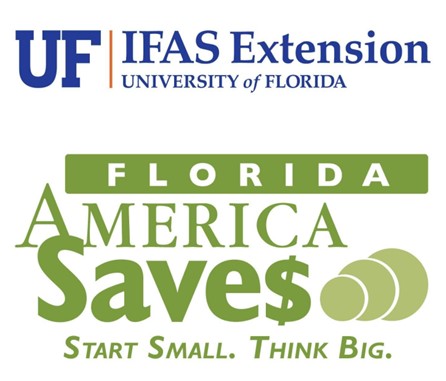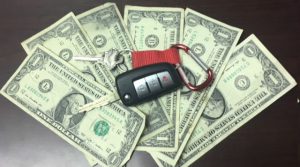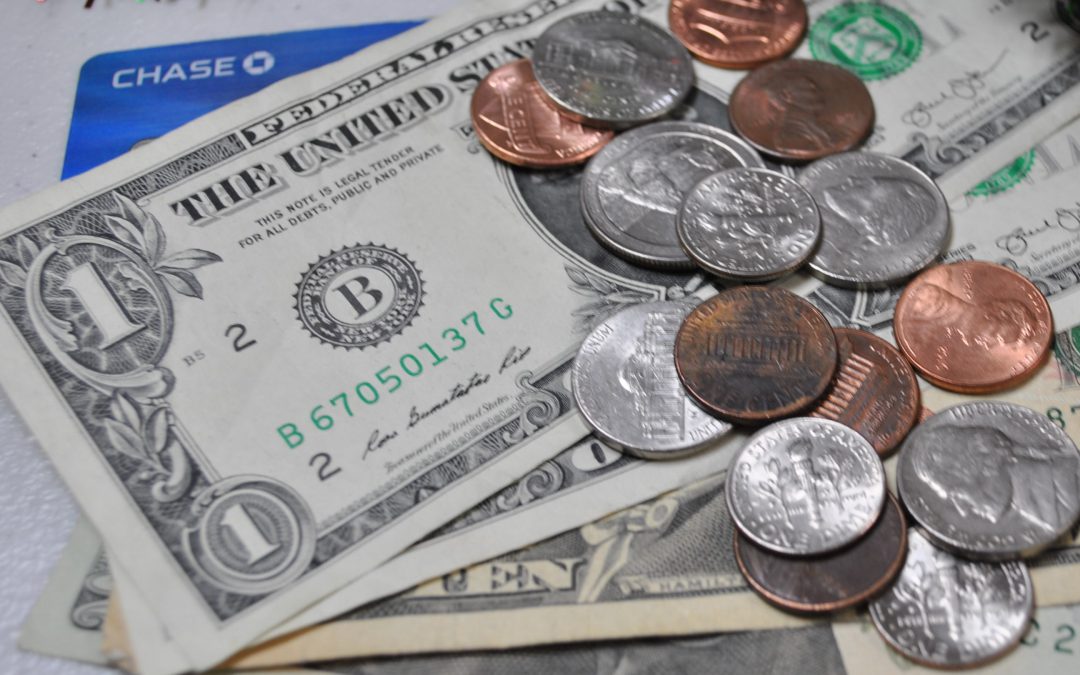
by Laurie Osgood | Apr 1, 2021
 April is designated as National Financial Literacy Month to increase awareness about financial literacy, especially with the Coronavirus (COVID-19) causing economic worry for families across the United States. When it comes to financial literacy, knowledge is power!
April is designated as National Financial Literacy Month to increase awareness about financial literacy, especially with the Coronavirus (COVID-19) causing economic worry for families across the United States. When it comes to financial literacy, knowledge is power!
Consumer debt has become a major challenge for families. If you owe money to multiple creditors, managing this debt can be overwhelming. Many Americans have more debt than they can afford to pay. Developing strategies for overcoming this challenge is essential. These strategies should include building financial knowledge, developing a budget, and setting savings goals to improve your financial outlook.
Financial literacy means understanding how to save, borrow, invest, and care for your money, leading to greater financial well-being. Research has shown that our physical health and well-being are directly linked to our financial health and well-being.
Florida Saves is a statewide initiative that helps inspire Florida families to set savings goals, lower debt, and build personal wealth. The Florida Saves pledge, located on the Florida Saves website, can help us establish personal financial goals. With this pledge, you’re making a commitment to work toward a savings goal, such as college tuition, an emergency fund, or down payment on your first home. Visit the Florida Saves Initiative website to learn more about financial literacy.
Whatever your savings goals are, becoming financially literate can help you achieve those goals. For more information about financial literacy and management, please contact your local UF/IFAS Extension Agent.
Extension classes are open to everyone regardless of race, creed, color, religion, age, disability, sex, sexual orientation, marital status, national origin, political opinions, or affiliations.

by Laurie Osgood | Feb 6, 2019

Regular vehicle maintenance can help you avoid expensive repairs. Photo credit: UF/IFAS Northwest District
A car is one of the biggest investments we will make. With proper car maintenance, you can increase safety, improve performance, and save money in the long run. According to AAA, big improvements in powertrain technology, lubricant, and rust prevention have led to improvements in automobile reliability, longevity, and durability. With proper care, almost any car can make it well past the 100,000-mile mark.
TIPS FOR PROLONGING THE LIFE OF YOUR CAR
• Do some research and purchase a safe, reliable vehicle
• Stick to the recommended car maintenance schedule
• Buy high quality parts: engine oil, battery, tires, etc.
• Keep your car clean, inside and out
• Know what to look for if your car is beginning to show signs of trouble
WARNING SIGNS THAT YOUR CAR MAY BE HEADED FOR TROUBLE
You know your car, and, therefore, you are the best judge of when it’s acting differently. There are signs your car may exhibit that will warn you of a potential problem. It could be a light, a sound, or an unusual smell. Consumer Reports recommends at the first sign of trouble, you should take your car to a reliable mechanic.
WARNING LIGHTS
Lights that appear on your dashboard are connected to sensors that monitor everything your car does. If your car senses that something isn’t quite right, the computer will use these lights to tell you what it is. If any of these lights appear, your mechanic will be able to hook up your vehicle to a diagnostic scan tool to identify the trouble and find out exactly what’s prompting the light to turn on.
Pay attention to these warning lights, as they could indicate a problem with your vehicle:
• Check Engine
• Check Oil/Oil Level Low
• Oil Pressure Low
UNUSUAL SOUNDS
You know your car and the sounds it normally makes, but new or different sounds can be a sign of trouble. These sounds can be a clue to what’s going on under the hood. GEICO Insurance offers a list of these sounds and their possible causes.
Sounds and Possible Causes
- A sound like a coin rattling inside a tin can: Could be a loose lug nut inside the hub cap.
- Brakes squealing or grinding: Your brake pads or shoes might need to be replaced. Pads may be worn, and the sound is metal on metal.
- A snapping, popping, or clicking sound when you turn a corner: One or both of the constant velocity (CV) joints on your front axle could need to be replaced.
- A rhythmic squeak that speeds up as you accelerate: This could indicate a problem with the universal joints (U-joints) in the driveshaft.
- A howling, whining, or even “singing” sound: Bearings, which are small metal balls that help parts rotate smoothly, may not be properly working.
- A rhythmic clunking, tapping, or banging from under the hood: This could indicate a problem with valves, pistons, or connecting rods. Rough, bumpy motions could be caused by faulty spark plugs, clogged fuel lines, or a bad fuel filter.
- A squealing sound from under the hood at start-up or when accelerating: This sound could be caused by worn or loose accessory belts for the power steering pump, air conditioner compressor, alternator, or the serpentine belt.
FOUL SMELLS
Toxic gases such as carbon monoxide are contained in a car’s exhaust system. If you smell a foul or strong smell while inside your car, this may be a sign of a serious problem. You should have it checked by a mechanic as soon as possible. If oil or coolant is leaking, this may mean hazardous exhaust gases are entering the interior of your car.
The smell of rubber burning could be a signal that your car’s drive belts or accessory belts underneath the hood are damaged, worn, or loose. These belts will need to be replaced as soon as possible to prevent more problems.
SMOKE
Smoke can come from the front or back of your car. Smoke coming from beneath the car’s hood most likely means your engine is overheating, and you should bring it to a mechanic right away. The color of the smoke coming out of your exhaust pipe can give you a clue about what may be going on inside your engine.
Blue Smoke: This could mean oil is escaping from somewhere within the engine and is being burned along with the gasoline. If you see blue smoke, your mechanic should look for damaged or worn seals in the engine.
White Smoke: May mean antifreeze or water condensation may have mixed in with the gasoline. You should have it checked out as soon as possible.
Mechanics agree that preventive maintenance, including regular oil changes and belt replacement, can help to extend the life of your car. Car maintenance can be an inconvenience that requires time, planning, and effort. But, in the long run, the benefits of driving a safe car outweigh the cost and aggravation.
For more information on how to save money by properly maintaining your car, contact your local UF/IFAS Extension Office.
Sources:
AAA: https://magazine.northeast.aaa.com/daily/life/cars-trucks/benefits-maintaining-vehicle/
Consumer Reports: https://www.consumerreports.org/car-repair-maintenance/make-your-car-last-200-000-miles/
GEICO: https://www.geico.com/more/driving/auto/auto-care/car-noises/?utm_source=geico&utm_medium=email&utm_content=newsletter&utm_campaign=feb2018

by Laurie Osgood | Dec 1, 2018
It’s the Most Wonderful Time of the Year… for Criminals, Thieves and Scammers

Photo source: UF/IFAS Northwest District
This holiday season scammers and identity thieves are hoping to take advantage of shoppers who may be too preoccupied with travel, gift-buying, and festivities to notice. Therefore, during the holidays, it is even more important to remain vigilant while shopping in stores or online.
More people are turning to online shopping for their holiday gifts. The National Retail Federation forecasts consumers to spend about $721 billion this holiday season. However, this increase in online spending comes with a greater risk for thieves to steal your money or your identity.
Here are some common holiday scams and how to protect yourself from becoming a victim:
Deals That Are Too Good to Be True –while shopping online keep the old adage in mind, “If it sounds too good to be true, it probably is”. During the holidays, shoppers are looking for huge deals, and scammers know it. These thieves often set up websites that appear to be legitimate, just to steal your personal information and/or to download a virus onto your computer.
It is important to make sure any site in which you shop contains an HTTPS security designation. Another simple way to know if the website is authentic is to look for the padlock symbol that appears in the address bar of the retailer. Here is an example of an Amazon online address bar.

Holiday Phishing Scams – Around the holidays, beware of emails pretending to be sent from familiar companies like FedEx or UPS. These emails claim to provide links for package tracking information. These links, once clicked on, will either steal your personal information or download a virus onto your computer. Remember, if you receive an email from someone you don’t know or weren’t expecting an email from, you should never click on links. Also, make sure you are using current antivirus software on your computer.
Identity Theft and ATM Skimmers –
In Store Shopping:
-
- Being vigilant is key to protecting yourself during the holiday season. Thieves target shoppers who are either struggling with packages and bags or those who are unaware of their surroundings. Thieves see this as an opportunity to steal your wallet or credit card numbers.
- When using an ATM or other key pads, make sure to check for skimming devices that thieves install on ATMs and other card readers. These skimmers are placed over the existing key pad in order to access your account. It is also advised to cover the keypad when entering your pin number while purchasing items or getting money from an ATM
- After each purchase, take time to put your credit card back into your wallet. Also, it may be worthwhile to purchase an RFID-blocking wallet. These wallets are designed to shield your credit card information from RFID readers and skimmers..
Online Shopping:
- When shopping online, experts advise consumers to use credit cards instead of debit cards. In case of fraud, both payments types can be disputed, however debit card payments are automatically deducted from your bank account. Therefore, it may take longer to get your money back.
Gift Cards– Gift cards are a great idea for people on our shopping list. However, a record number of retail stores are closing their doors, so you should consider the retailer’s financial situation before buying a gift card. If the retailer closes or declares bankruptcy, the recipient may not be able to use the gift card.
Package Delivery Theft- Having packages delivered to our homes makes us a target for thieves who case neighborhoods and even follow delivery trucks looking for packages sitting on porches. There are ways to prevent this from happening to you. You can have your packages delivered to their office, a local pick-up area, like a UPS Store or try to schedule delivery times when someone will be home, if possible. Online shoppers can also set up tracking notifications, to know when an item is delivered.
Charitable Giving Tips – Give to charities wisely. At this time of year, we all want to give to charities that pull on our heart strings. But beware of giving money to charities that are fake or irresponsible. Do your research to make sure to support the many legitimate and deserving charities that can use our help during the holidays.
The 2018 Consumer Protection Guide – This guide provides more information about protecting yourself as a consumer, including online identity theft, charity scams, item recalls and more.
The holiday season brings out the best and worst in people. Therefore, you should be vigilant because the holidays are a lucrative time of year for thieves and scammers who are trying their hardest to get into your bank account.
For more tips on how to keep your identity safe and avoid holiday scams, contact Laurie Osgood, UF/IFAS Extension, Gadsden County at Osgoodlb@ufl.edu or call (850) 875-7255.

by Angela Hinkle | Sep 28, 2016
 I did it! Or should I say, I didn’t do it! Or more realistically, I almost didn’t do it! What? Spend money in the month of September. Some of you may remember my wallet really needed a break, so I set a goal to spend no money in the month of September unless absolutely necessary.
I did it! Or should I say, I didn’t do it! Or more realistically, I almost didn’t do it! What? Spend money in the month of September. Some of you may remember my wallet really needed a break, so I set a goal to spend no money in the month of September unless absolutely necessary.
Did this help? Yes, my wallet, checking account, and credit cards seem much more at peace. Was it easy? Except for a few bumps and hiccups, it wasn’t too bad. Like a good financial citizen, I paid all by bills and gave at church, I kept gas in my car, and had plenty of food (in my house).
However…
Snafu #1: The food thing was a little trickier when it came to work. I went to a conference and for five days, we only received one dinner, one lunch, and two breakfasts. The people from Idaho brought and gave out great potato chips (but I could not and should not try to live off of those). I brought lots of nuts, granola bars, and small containers of fruit in my suitcase but still had to fork out money for three dinners and one lunch with a little more substance. My traveling companion knew of the goal I had set and was nice enough to buy me dinner one night. (I think I must have looked really sad and hungry.)
Snafu #2: When did September become the season of giving? A wedding and a baby shower brought out the checkbook. Oh well, there are a new bride and mom-to-be who are happy.
At home, the only food I had to buy was bread (yes, I could have frozen some – yuck, or made some – no time) and milk (yes, I could have used the dry milk – yuck to drink) and since I miscalculated the amount of dog food in the house, I had to buy some of that, too. I will give a big shout out for canned and frozen foods. It was no big deal to not go out to eat nor go to the movies or to other forms of entertainment. (The good stuff doesn’t usually come out until October anyway.)
What about my all-important trips to the nail salon? Ha! I found a gift certificate (I love those things) that took care of both trips to the salon.
Though I didn’t go hard-core all the way, I did really well. I feel so much better and I’ve veered off my path toward debtor’s prison (yes, exaggeration).
I am blessed to have a comfortable life so this was not that difficult. One month without extra spending was a free gift I gave myself. See if giving yourself the gift of a no-spend month makes your life better. Then be sure to share your success stories.

by Angela Hinkle | Sep 7, 2016
The month of August has been a financially painful time for me. I blame this on the fact that my only child has just begun her first year at college. Lots (and I mean a whole lot) of spending happened in preparation for this auspicious endeavor.
- Ouch – I began to question if I was spending more than I was making. (This was brought on by reading Building a Spending Plan: All Six Steps, a UF/IFAS EDIS publication.) Actually a very helpful financial read. Check it out: http://edis.ifas.ufl.edu/pdffiles/HE/HE82700.pdf
- Ouch – My credit card bills in the last few months have been quite hefty.
- OUCH – The college bills for housing and tuition came due.
What to do to help alleviate some of the pain caused by this financial stress? I remember reading about “no-spend” months. People often pick February because it has the fewest number of days. But I feel the need for immediate action – and so September it is.
A no-spend month means you don’t spend money on anything except the absolute necessities. I have to pay the mortgage, the car payment, utilities, and I have to get may nails done (yes, that is, in fact, a necessity for me). But no buying clothes or shoes, going out to eat, going to the movies, buying gum or an emergency caffeinated drink. Since there is no child in my house now, I think I may actually be able to do this.
Researchers say if we tell others about our goal, we are more likely to work hard to achieve it. So I told the participants in a health class I was teaching about this goal of mine. One very sweet, gentle, older woman said, “Honey, you know you can’t do that.” My somewhat deflated response was, “Why?” Her kind answer – “You know you’re going to send that child care packages.” Right she was.
However, undeterred, quite determined actually, I have found ways to plan around such obstacles. I sent a care package to the child at the end of August and will send the next one at the beginning of October. I will eat out of the fully stocked freezer and pantry to avoid trips to the store. I will start September with an already full tank of gas. I will watch TV at home. I will do this!
Once October rolls around, check back in and I’ll let you know how I did. Wish me luck!

 April is designated as National Financial Literacy Month to increase awareness about financial literacy, especially with the Coronavirus (COVID-19) causing economic worry for families across the United States. When it comes to financial literacy, knowledge is power!
April is designated as National Financial Literacy Month to increase awareness about financial literacy, especially with the Coronavirus (COVID-19) causing economic worry for families across the United States. When it comes to financial literacy, knowledge is power!







